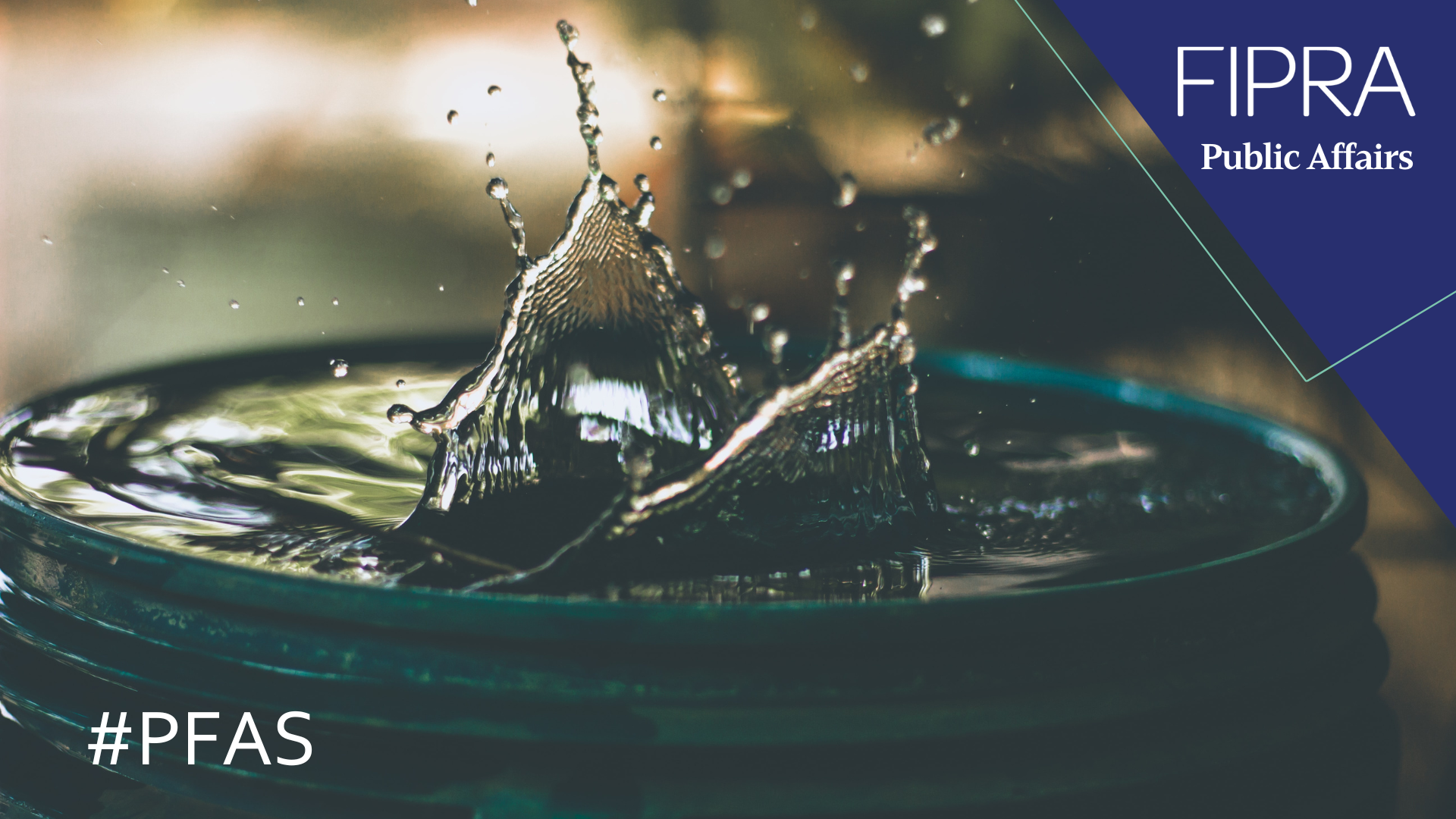policy impact with FIPRA
PFAS: rooting ambitions for a toxic-free environment in a manageable process

What are PFAS?
Per- and polyfluoroalkyl substances, also known as PFAS, are a class of up to 10,000 synthetic substances. For over 70 years, they have been widely used across industry for their non-stick, waterproof, or heat-resistant properties and can be found in a multitude of everyday objects such as non-stick pans, cooking paper, food packaging, waterproof textiles, and cosmetics. PFAS are also prevalent in the professional arena, used not only in paints, pesticides, and fire-fighting foam but also in pharmaceuticals, semiconductors, and transport infrastructure. Regrettably, they are all highly persistent in the environment and some of them, for example, perfluorooctanoic acid (PFOA), are linked to severe health-related problems, such as cancer, low infant birth weight, and diminished vaccine response – these have already been restricted or are subject to international bans.
Restricting the use of PFAS
The 2020 Chemicals Strategy for Sustainability (CSS) signalled PFAS as a growing concern requiring urgent action, notably before the revision of Registration, Evaluation, Authorisation and Restriction of Chemicals (REACH). Following the publishing of a proposal by the European Chemicals Agency (ECHA) to ban PFAS in fire-fighting foams in 2022, four EU Member States and Norway have called on ECHA to restrict the whole group of PFAS across all uses at European level, except for specified exemptions and derogations. Without any doubt, this is the most ambitious and complex restriction proposal ever put forward. While NGOs and European citizens have expressed their support, they have also raised concerns about the many derogations and proposed timelines. At the same time, several industrial sectors have warned that their activities would be put at risk due to the lack of alternative substances available and the wide variety of essential uses, not all of which are included in the list of (potential) derogations.
By examining this restriction proposal now, ECHA and the Commission will be in a position to test some of the key concepts and principles embedded in the CSS before they are legally defined and adopted. Among others, this will include the concept of (very) mobile substances, the extension of Generic Risk Assessment, the definition of an essential use concept, the boundaries of a grouping of substances, and the reform of REACH restriction and authorisation processes.
By restricting all uses on the sole ground of high persistency to the environment and not necessarily bioaccumulation, thousands of substances – including fluoropolymers, categorised as polymers of low concern – and their applications would be targeted with relatively few derogations based on the (limited) availability of alternatives. In addition, the period of six months allocated by ECHA for consulting all stakeholders is seriously challenging for sectors with very extensive and international supply chains, where thus far there has been no obligation to report on substances of low concern. As a result, industries producing complex articles currently have only limited knowledge of the PFAS used in the raw materials, parts, manufacturing processes, or packaging of their products.
The ECHA committees in charge of drafting an opinion will be faced with a colossal amount of data, meaning that the submissions assessment work will likely prove a Sisyphean labour. This could delay the proposal’s implementation due to legal and technical implications – in essence, running the risk of “putting all the eggs in one basket”. Similarly, the recommendation that industrial stakeholders provide feedback on the proposal at the earliest stage possible of the consultation process, and the requirement for all data submissions to be supported by evidence, may not be an optimal solution.
The EU needs to make sure the PFAS restriction is a feasible process, able to be managed as well as implemented in practice and enforced.
Jan Ahlskog, Senior Director – Food, Industrials, Chemicals & Environment
Most importantly, this broad restriction would put at risk critical industries and products essential to society that already comply with strict requirements under sectoral legislation. This last point should be properly considered by legislators, especially in a context where numerous national initiatives are being advanced by Member States, undermining a harmonised approach at the EU level, which ought to be the priority. Workable solutions must be found, and a constructive and exhaustive dialogue between decision-makers and businesses should be encouraged to ensure a realistic and practicable restriction can be adopted within a reasonable period. The proposal should also list in an annex all Chemical Abstracts Service (CAS) Registry Numbers for the restricted chemical substances – without them, identification becomes extremely challenging.
FIPRA’s view
FIPRA welcomes the EU policy initiative but calls upon the Commission to ensure the PFAS restriction is a feasible process, able to be managed as well as implemented in practice and enforced. It would be advisable to start by addressing limitations in the current REACH authorisation and restriction processes (including a better and clearer definition of a viable alternative) as well as to focus in the first instance on PFASs that are proven to be very persistent, very bioaccumulative and involved in high-volume applications, particularly for consumer uses. Developing a balanced approach when phasing out PFAS in close consultation with industries across Europe, creates an opportunity for EU policymakers to lead globally on a topic that benefits societies at large.
For more information, please contact:
Jan Ahlskog at [email protected]
Julia Pochat at [email protected]
Eliot Goarant at [email protected]


